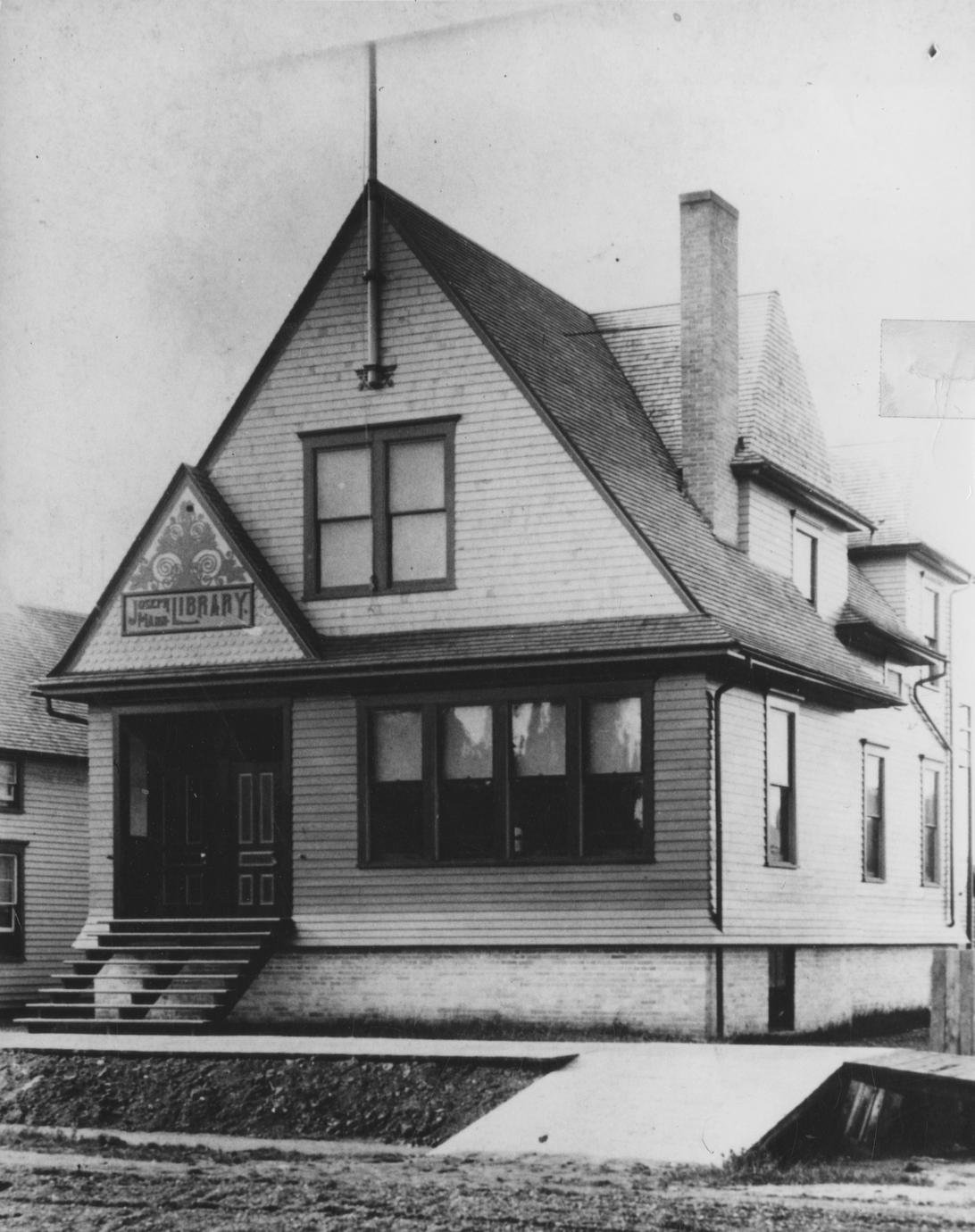Joseph Mann Library Opened in 1891 at Two Rivers
Exterior view of the original Joseph Mann Library in 1891. The building was later used for city hall.
COURTESY HUBERT R. WENTORF PHOTO COLLECTION, LESTER PUBLIC LIBRARY, TWO RIVERS
On October 16, 1890, concerned about the lack of library services in Two Rivers, members of the Chautauqua Reading Circle held a public meeting at Turner Hall to consider the establishment of a public library and reading room. The local group, formed in 1885, was part of the national adult educational and social movement in the United States that peaked in popularity in the late nineteenth and early twentieth centuries.
Joseph Mann Library interior, 1902. COURTESY HUBERT R. WENTORF PHOTO COLLECTION, LESTER PUBLIC LIBRARY, TWO RIVERS
At the meeting, letters in support of the project were read and several speakers endorsed the library. Leopold Mann indicated he would donate $500 and a site for the building.
By January 19, 1891, $1,122 in subscriptions had been received from more than 300 persons. Mrs. Joseph Mann of Milwaukee donated $1,000 on the condition that the library be named after her late husband Joseph Mann, which was approved.
Before any building bids were accepted, the organization incorporated on February 2, 1891 as the Joseph Mann Library Association. The association consisted of all persons who had donated one dollar or more. The first meeting was held on March 2, 1891. The association was led by five officers and nine directors.
On July 21, 1891, the Manitowoc County Chronicle reported, “Work on the library building is now in progress” and on October 13, “The building for the Joseph Mann Library is nearly completed.” The two-story front-gabled frame library building was located on Lots 3 and 4, Block 72, south of Main (now Sixteenth) Street between Washington and Adams Streets. The total cost of construction, heater, furniture and books was $3,363.73.
The Joseph Mann Library opened to the public on December 17, 1891. The collection consisted of 846 circulating books, 36 reference books and 478 public documents. Several magazines and newspapers were available, but did not circulate.
Lizzie Yahnke was hired as the first librarian at an annual salary of $75 as well as free living quarters and heat in rooms above the library. Library hours were each evening, except Sunday, and every Monday, Wednesday, Saturday and Sunday afternoon. Anyone 14 years old could check out one book at a time for two weeks and renew it for one week. The fine for an overdue book was 3¢ per day.
On January 27, 1893, the Joseph Mann Library Association deeded the library to the city with stipulations the name would be retained and not less than $500 of public funds would be appropriated annually for library maintenance, books and other expenses.
In 1899, Herman Voshardt, a partner in the architectural sheet metal firm of Friedley-Voshardt Co., Chicago, and a former Two Rivers resident, donated decorative copper sheeting for the walls and ceiling in the reading room at the library. The artistic interior ornamentation made the room “unique among those of like institutions” in the state.
By 1914, the library needed more space. A Mission-style building, designed by the Madison architectural firm of Claude and Stark, was built across from the original library on Sixteenth Street, partly funded with a $12,500 grant from philanthropist Andrew Carnegie. Building additions were completed in 1953 and 1969.
The original library building was given to the city and used as city hall for 40 years. In 1953, municipal offices were moved to the converted Vocational Building, formerly the H. P. Hamilton School, on the east side of the public square.
By the end of the 20th century, the Joseph Mann Library was again overcrowded and a new facility was needed. A new modern library, renamed the Lester Public Library, opened at 1001 Adams Street in 1997. Today’s library continues a 132-year-long legacy of providing new technologies, programs and collections in a variety of formats for the benefit of adults and youth in the Two Rivers community.



